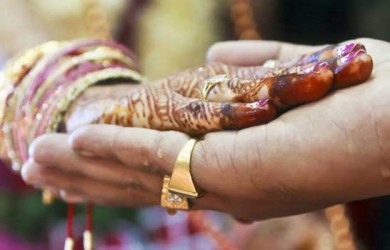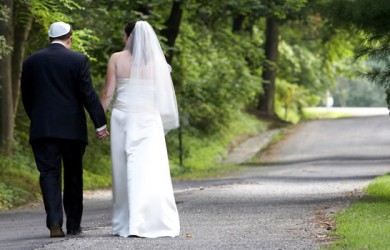15 Hindu Marriage Rituals & Their Meaning

Heal & Grow Daily for a Happier Relationship
Subscribe FREEKey Takeaways
Marriage.com AI Quick Summary
Weddings aren’t just about vows—they’re about moments that stay with you forever. From the sound of the shehnai to the warmth of haldi, each step in a Hindu wedding is filled with meaning, laughter, and quiet emotion.
Behind every turmeric smear or floral garland lies centuries of culture, connection, and love. Hindu marriage rituals aren’t just traditions; they’re beautiful expressions of two souls, two families, and a shared future.
Whether it’s the giggles during joota chupai or the tearful hugs at vidaai… there’s something so sacred, so human about it all. You don’t just witness a wedding—you feel it.
What do Hindu marriage rituals symbolize?
Hindu marriage rituals symbolize the sacred union of two souls, guided by love, trust, and shared purpose. Each ritual represents a deeper meaning—devotion, family blessings, emotional bonding, and the responsibilities of married life.
These aren’t just customs; they’re heartfelt expressions of commitment and mutual respect. From spiritual vows to joyful traditions, every step reflects the beauty of walking together through life. At its heart, a Hindu wedding is a promise—not just between two people, but between hearts, families, and generations.
Please note: Hindu weddings are beautifully diverse, with rituals and customs that vary across regions, families, and traditions. The sequence or meaning of certain ceremonies may differ slightly depending on community beliefs or personal choices. What’s shared here reflects some of the most commonly practiced rituals—but every wedding holds its own unique charm and significance.
15 Hindu marriage rituals & their meaning
Each Hindu wedding is a beautiful blend of sacred customs, heartfelt moments, and joyful celebrations. These rituals are not just traditional—they carry deep emotional and spiritual value for the couple and their families.
Whether you’re attending your first Hindu wedding or simply curious, understanding these steps can help you appreciate the symbolic journey two people take as they begin their life together. Here’s a look at 15 meaningful Hindu marriage rituals, explained simply and thoughtfully.
1. Muhurat – Choosing the most auspicious wedding date and time
The muhurat is the first and most spiritually significant step in a Hindu wedding. Based on astrological charts and planetary alignments, a priest determines the best day and time for the ceremony.
This ensures that the couple begins their life together on a harmonious note, aligned with divine timing. In many homes, the announcement of the muhurat is met with celebration. It sets everything in motion with a sense of purpose and positivity.
- What happens: A priest selects the wedding date and time using the couple’s birth charts.
- Why is it done: To invite divine blessings and start the union on an astrologically favorable day.
- What does it mean emotionally and spiritually: It marks the couple’s first shared milestone and signals divine approval of the union.
2. Roka – The official promise to unite two families
The roka is the formal meeting where both families give their blessings and agree on the marriage. Often, a small, intimate event seals the relationship with mutual consent.
While it’s not a legal engagement, it’s deeply respected in the Hindu marriage traditions of India. Gifts, sweets, and warmth are exchanged between families. It symbolizes unity, commitment, and the start of a shared future.
- What happens: Families meet, exchange blessings, and confirm the intent to marry.
- Why is it done: To mark the official beginning of the wedding journey.
- What does it mean emotionally and spiritually: It’s a public promise of love, unity, and togetherness.
3. Ganesh pujan – Seeking blessings for a peaceful and obstacle-free ceremony
Before any major step in a Hindu traditional wedding, it’s customary to pray to Lord Ganesha, the remover of obstacles. Lord Ganesh is believed to be the destroyer of obstacles and evils.
The couple and their parents are a part of this Puja ceremony. The priest guides them to offer sweets and flowers to the deity. The ceremony prepares the couple for a new beginning. Traditional Indian weddings are incomplete without the Ganesh Puja.
- What happens: A priest performs a ritual to honor Lord Ganesha.
- Why is it done: To remove obstacles and bless the wedding with peace.
- What does it mean emotionally and spiritually: It brings focus, positivity, and protection to the couple’s path ahead.
4. Mehendi – A joyful celebration of beauty, love, and good luck
Mehendi is a fun Hindu marriage ritual of Indian weddings that is organized by the family of the Hindu bride at her house. The bride’s hands and feet are adorned with intricate designs, often including the groom’s initials.
All the members of the family sing, dance, and make merry during the event. It is said that if the resulting color of the henna application is dark and beautiful, then she will be blessed with a loving husband.
- What happens: Henna is applied to the bride’s hands and feet in elaborate designs.
- Why is it done: To bring good luck, beauty, and joy to the bride’s new journey.
- What does it mean emotionally and spiritually : It symbolizes love, anticipation, and blessings for the new life ahead.
5. Haldi – A purifying and glowing send-off to married life
‘Haldi’ or turmeric holds a special place among many Indian wedding traditions. The Haldi ceremony is usually held a couple of days prior to the wedding at the couple’s respective residences.
Hindus also believe that turmeric’s application keeps the couple away from all ‘evil eyes.’ It alleviates their nervousness before the wedding
- What happens: A Haldi or turmeric paste mixed with sandalwood, milk, and rose water is applied to the bride and groom’s face, neck, hands, and feet by family members.
- Why is it done: Haldi holds significance in daily life as well. It is believed that the yellow color of turmeric brightens the skin color of the couple
- What does it mean emotionally and spiritually: It’s a joyful send-off into marriage, surrounded by warmth and care.
6. Tilak – The beginning of formal commitment and acceptance
In the wedding ceremony order of events, perhaps the most essential pre-wedding function is the Tilak ceremony (the application of a red paste of kumkum on the groom’s forehead).
It holds a significant position among all wedding ceremony rituals and customs. In this ceremony, the father or the brother of the bride applies tilak on the groom’s forehead.
- What happens: In this ceremony, the father or the brother of the bride applies tilak on the groom’s forehead.
- Why is it done: To formalize the commitment and bless the upcoming union.
- What does it mean emotionally and spiritually: It strengthens the bond of acceptance and mutual respect.
7. Ring ceremony – A modern promise of love and commitment
The Sagai or the Ring ceremony is the first in the wedding ceremony order. It marks the beginning of the wedding preparations and is considered an integral part of Indian weddings.
It is celebrated in the presence of a Hindu priest (pujari) as well as close family members. The ring ceremony symbolizes that both the bride and groom are a couple now and willing to embark on their life together.
- What happens: The couple exchanges rings, often in a celebratory gathering.
- Why is it done: To formally declare their love and engagement.
- What does it mean emotionally and spiritually: It symbolizes trust, readiness, and the joyful beginning of a lifelong bond.
8. Sangeet – A night of music, laughter, and blending of families
The sangeet is pure celebration! It’s an evening where both families come together to dance, sing, and perform in honor of the couple.
It’s informal, lively, and one of the most anticipated pre-wedding events. The focus is on fun and togetherness.
- What happens: Friends and family perform dances and enjoy music.
- Why is it done: To celebrate the couple and bring both families closer.
- What does it mean emotionally and spiritually: It creates joyful memories and bonds that carry into married life.
9. Baraat – The groom’s celebratory arrival, full of joy and tradition
The baraat is the groom’s big entrance, filled with music, dancing, and celebration. He arrives with his family and friends, ready to claim his bride.
Often, the bride’s family welcomes them with smiles, aarti, and playful rituals. It’s loud, joyful, and filled with anticipation.
- What happens: The groom and his procession arrive at the wedding venue dancing.
- Why is it done: To formally bring the groom into the bride’s home or venue.
- What does it mean emotionally and spiritually: It marks the groom’s transition into a new family with happiness and hope.
10. Bride’s entry – The bride’s symbolic step into her new chapter
The bride’s entry is an emotional, often breathtaking moment. With music, flower petals, or a canopy, the bride walks in surrounded by her closest loved ones.
All eyes are on her as she steps into a life-changing moment. It’s graceful, powerful, and full of heart.
- What happens: The bride walks into the venue, often accompanied by family or friends.
- Why is it done: To honor her journey into a new phase of life.
- What does it mean emotionally and spiritually: It symbolizes strength, beauty, and emotional transition.
11. Jaimala – Exchanging garlands as a mutual acceptance of love
The jaimala is the ceremony where the bride and groom meet and acknowledge each other. They exchange flower garlands, often amidst cheering and laughter. It’s a symbolic welcome and acceptance of one another as life partners.
- What happens: The couple places garlands around each other’s necks.
- Why is it done: To symbolize mutual acceptance and the beginning of the marital bond.
- What does it mean emotionally and spiritually: It marks love, respect, and joyful consent.
12. Kanyadaan – A sacred moment of trust, love, and responsibility
Kanyadaan is when the bride’s father gives her hand to the groom, entrusting her happiness and care to him.
It’s a deeply emotional and respected moment in Hindu marriage rituals. The ritual emphasizes selflessness and the sacredness of marriage.
- What happens: The bride’s father places her hand in the groom’s.
- Why is it done: To formally give away the bride with blessings and trust.
- What does it mean emotionally and spiritually: It’s a powerful gesture of love, release, and hope.
13. Phere, mangalsutra & sindoor – Sacred vows, a bond of protection, and a mark of marital devotion
The pheras are the core of the Hindu wedding ceremony step by step. The couple circles the sacred fire, making seven vows together.
The groom then ties the mangalsutra around the bride’s neck and applies sindoor to her hair parting—signs of marital commitment. This moment seals their spiritual and emotional union.
- What happens: The couple takes seven rounds, exchanges vows, and completes sacred symbols of marriage.
- Why is it done: To solemnize the marriage with divine witness and blessings.
- What does it mean emotionally and spiritually: It’s the heart of the wedding—a sacred promise of love, loyalty, and companionship.
14. Joota chupai – A light-hearted tradition that adds laughter to the big day
In joota chupai, the bride’s sisters and friends steal the groom’s shoes and ask for money in return.
It’s playful, teasing, and full of laughter. This ritual brings a touch of humor and bonding to the big day.
- What happens: The bride’s side hides the groom’s shoes until he pays up.
- Why is it done: For fun and to create light-hearted connections.
- What does it mean emotionally and spiritually: It breaks the formality and adds joyous energy to the wedding.
15. Vidaai – A bittersweet farewell filled with love, gratitude, and new beginnings
Vidaai is the final ceremony where the bride leaves her parental home. It’s often emotional, with tears and hugs, as she steps into her new life.
The moment honors the depth of her bond with her family and her strength in embracing change.
- What happens: The bride says goodbye and leaves with the groom’s family.
- Why is it done: To mark the bride’s transition to her marital home.
- What does it mean emotionally and spiritually: It represents love, courage, and the beginning of a new journey.
Watch this video which shows how cultures around the world have their own ideas on how to say “I do.”
Final thoughts
Hindu marriage rituals hold deep emotional and spiritual meaning—each one a thread in the beautiful tapestry of love, family, and tradition. Whether it’s the quiet sacredness of the pheras or the playful joy of joota chupai, every moment in Hindu marriage in India creates lasting memories and deeper connections.
In a world that’s always changing, these rituals remind us of our roots, our relationships, and the beauty of coming together—heart to heart, family to family. They’re not just customs; they’re expressions of love in its purest, most timeless form.
 Tips
Tips
Write your tip or submit a video tip
All tips are reviewed before the publishing.
Share this article on
Recent Articles
Related Quizzes
Heal & Grow Daily for a Happier, Healthier Relationship
Subscribe FREE on YouTube We'd love your feedback!
We'd love your feedback!
 Expert Q&A
Expert Q&A
Ask your question related to this topic & get the support you deserve from experts.





















 Thanks for your feedback!
Thanks for your feedback!